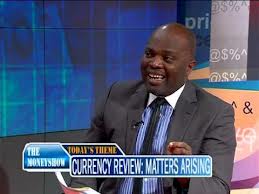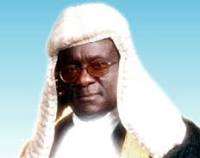JARUSHUB THOUGHT LEADERSHIP SERIES – TOPE FASUA (1): CAN LEADERS BE TOO MANY?

TOPE FASUA, FCA
Fasua, an accountant, economist, public policy analyst and former banker, is the CEO of Global Analytics Consulting. He is also the author of the book, THINGS TO DO BEFORE YOUR CAREER DISAPPEARS
Look around you. Just how many leadership trainings/coachings are going on all over the place in Nigeria? I drove past a banner yesterday that promised leadership training to primary school students in South Africa over the summer. It got me wondering; can we say for certain that all these leadership trainings are having the desired impact on the society? I mean, is Nigeria gaining from these trainings? Should we be looking at a glorious future because these leadership trainings took place in our society, for our people? Also one would wonder, if all these people are leaders, who are the followers? Can a nation have too many leaders?
For sure, repetition is one of the surest ways of achieving impact. They say you become what you do repeatedly. People like Michael Phelps – multiple Olympic Gold winner – became the prodigies that they are, because they simply spent much more time practicing than anybody else on earth. If Nigeria spends much time repeating leadership lessons for its people, especially its young ones, there is a huge chance that one day, we would emerge as one of the most motivated peoples on earth, led by people who have imbibed the best leadership lessons available anywhere. That would be a great thing. But for now, it doesn’t seem like we have that many leaders who understand what leadership is all about. For if we do, we would have little reason to complain about our situation.
In the first place, I often wonder about the credentials, or if you like ‘street creds’ of those who mount rostrums and teach leadership to teeming starry-eyed youths in Nigeria. Shouldn’t people who teach leadership be asked ‘so what and who have you led before?’ Indeed, leadership is not meant to be taught with theory that people lift from inside books or take off the internet. A true leader should be able to draw so many life lessons from what he has done before. Look at Nelson Mandela for instance. He can tell one of the struggles of the days of apartheid and how he stood at the forefront. He can talk of 28 years in the gulag. He can tell of how he tried to reconcile the Boers and the Africans in his country. He can tell of how he managed the global community. That is a leader. In telling his story, he doesn’t have to rely on abstract examples or hearsay.
It is possible that what we have in Nigeria are mostly motivational speakers; people who discover their gifts of the gab and realize they can move people to exploits based on a lot of sweet talk. A key aspect of leadership is RISK-TAKING. But in Nigeria, very few people are ready to take any risks for whatever they believe in. In fact, most Nigerians, including those who teach leadership, are risk averse. The people we have seen who took risks are Fela Kuti, Gani Fawehinmi, Chima Ubani, Sanusi Lamido and a very few others. Often times, they pay a steep price for their beliefs. If they are not very smart, their children may die in penury, because their names become anathema to those who share the largesse. Those who teach leadership in Nigeria probably focus on the sweet aspects of leading; the aspect that props up one’s image and gives one fame. But there is more to leadership than photo opportunities. Let us look at some other aspects of leadership. A good leadership training should get people to go out from the session, and do something no one has ever done before. Positively speaking.
Apart from risk-taking, a leader should be ready to be a pioneer, must be strategic, in identifying what is the most important thing to do at each point in time and in devoting his/her time to that priority. A leader is someone who has at least one follower. That means that most of us are leaders. But are we leading well? Are we leading for the right purposes? An armed robbery kingpin is also a leader, but he leads his gang to steal, maim and kill on a daily basis. Leaders should also know, that their followers will do exactly as they do, not as they say. That is called authenticity, and is the only meaningful type of leadership.
This therefore is more of a challenge to the teachers of leadership, and those who reckon that they have attained the level of positive leadership. We should ensure that we are not just blowing a lot of hot wind and pumping up people temporarily, only to deflate them later when things don’t change around them. We cannot ignore the somber aspects of leaders, and the risky part. For those who are learning leadership, be sure to find out exactly what initiative your lecturer or coach has pioneered in the past. What entitles them to being paid to teach leadership – if you are paying them. It is most likely, that if such a person is unable to point to any, or is someone who has managed to avoid risk all his/her life, who is more interested in the good life and the photo ops, such a person is an inauthentic leader, and will equally raise people who are like him.
What we want in Nigeria, and in Africa, are authentic leaders, who can reason through the myriad of challenges we have, who can take the bull by the horn, who will stop talking and act, who can take the risks that need to be taken, for the greater good only. Those will certainly be few. But the rest can still make their impact down the rank and file.
Established in March 2013, JarusHub is a Nigerian information hub with focus on career and management. It is rated Nigeria's most authoritative destination for online career resources. It parades an array of Nigerian professionals who share their career experiences with a view to bridging career information gap and mentoring a generation to success. JarusHub has revolutionised career information and experience sharing in Africa. Whether you're a student, a recent graduate or an established professional, or even an executive, you will always find something to learn on JarusHub. All enquiries to jarushub@gmail.com or 0808 540 4500. Facebook: www.facebook.com/jarushub; Twitter: @jarushub or @mcjarus.
JarusHub Aptitude Test Preparation Masterclass
March 1, 2018
Let us have your say by leaving a comment belowCancel reply
Recommended For You
-
COMPANY REVIEW: MAINONE CABLE
May 31, 2018 -
Career Choice Dilemma: Medicine vs Finance?
June 23, 2020










